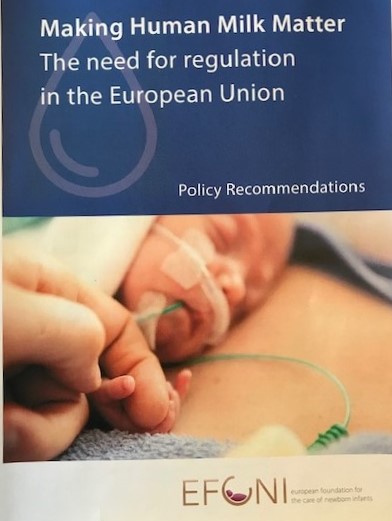
This time I want to focus on a side of our society where there is a lot of suffering by innocent people that is not commonly known. I am talking about babies who are born premature. A normal pregnancy lasts about 40 weeks from the date of the last menstruation cycle. Every year in Europe there are about 500,000 children born before week 37 and 100,000 will have to go to Intensive Care.
Of these 100,000 pre-term babies, 10% will die in the first weeks after birth, 10% develop serious disabilities, 40% develop some problems and about 40% have no problems at all. Some of these pre-term infants have become very well known, such as Winston Churchill, Albert Einstein, and Napoleon.
The one thing that these pre-term infants have in common is that they must grow. A normal weight gain will be about 15-20 gram/kg per day. The best possible way to do that is by using breast feeding, however that will not always be possible. The best second option is to use human milk that is donated by other women who have more milk than they need to feed their own baby.
Human milk is collected through and in human milk banks in Europe and in hospitals. There is currently no consistent and harmonized regulation for the collection of human milk in Europe. Over the last months, a group of experts have worked together to develop recommendations how to arrive at the regulation of human milk. I was very honored to be one the participants in that expert group.
The resulting document is called “Making Human Milk Matter” and is available through the link: www.efcni.org/human-milk-regulation

November 2020